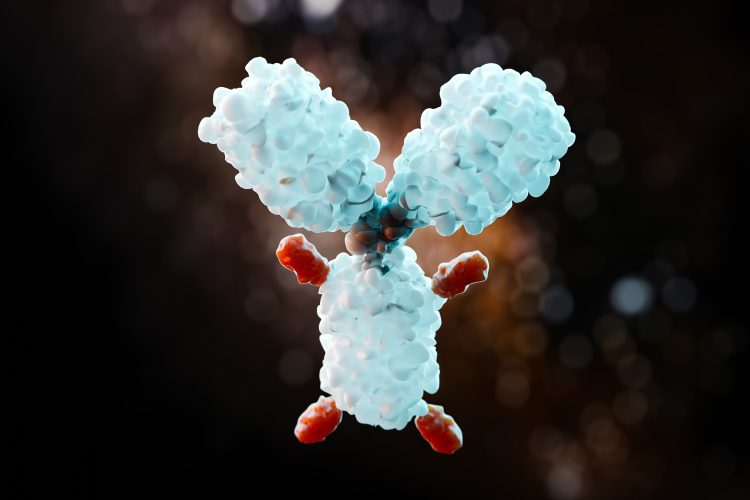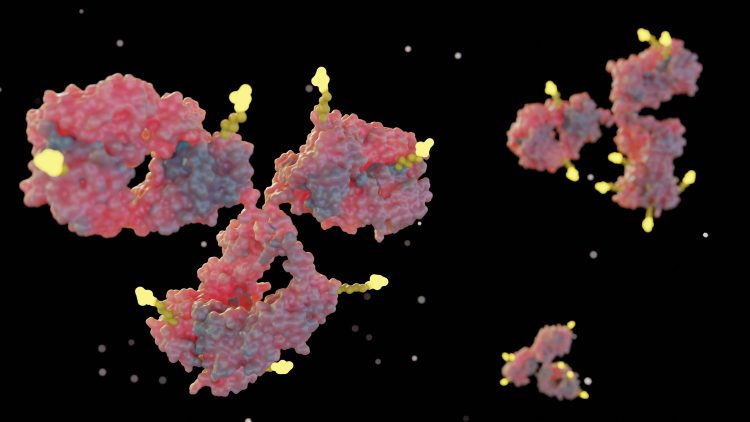Strategic planning in ADC development: insights from Lonza
Posted: 2 June 2025 | Drug Target Review | No comments yet
Preclinical and clinical development are critical to the success of ADCs, where early strategic decisions regarding manufacturability and scalability can make or break a project. Iwan Bertholjotti of Lonza emphasises the importance of proactive planning to avoid costly delays and ensure smooth progress towards clinical success.


Bioconjugates are rapidly emerging as a key frontier in targeted therapies, particularly through Antibody-Drug Conjugates (ADCs), which combine antibodies with cytotoxic drugs to deliver more precise and effective treatments. This fusion enables precise delivery of potent drugs directly to cancer cells or other targeted tissues, significantly improving the therapeutic impact while minimising harm to healthy cells. Iwan Bertholjotti, Senior Director of Commercial Development at Lonza, shares insights on the evolution of this field, Lonza’s innovations, and the growing role of machine learning in shaping next-generation therapeutics.
Shaping Lonza’s leadership in bioconjugates
Bertholjotti has been with the company for over 30 years, witnessing and actively contributing to its transformation from a traditional small molecule manufacturer into a global leader in contract development and manufacturing (CDMO) for biopharmaceuticals, including bioconjugates. His journey began in the early stages of his career, initially working with small molecules as a chemical engineer in development and manufacturing. It was in 2006, when the bioconjugation field – particularly ADCs – was still in its infancy, that Bertholjotti entered this rapidly advancing space.
Since 2019, Bertholjotti has played a pivotal role in steering the commercial development of Lonza’s bioconjugates sector. Under his leadership, the company has not only expanded its capabilities but also integrated cutting-edge technologies to meet the rising demand for ADCs. With a deep understanding of the industry’s complexities and the evolving market needs, he has been instrumental in providing innovative solutions for both biotech startups and large pharmaceutical companies.
Biomarkers are redefining how precision therapies are discovered, validated and delivered.
This exclusive expert-led report reveals how leading teams are using biomarker science to drive faster insights, cleaner data and more targeted treatments – from discovery to diagnostics.
Inside the report:
- How leading organisations are reshaping strategy with biomarker-led approaches
- Better tools for real-time decision-making – turning complex data into faster insights
- Global standardisation and assay sensitivity – what it takes to scale across networks
Discover how biomarker science is addressing the biggest hurdles in drug discovery, translational research and precision medicine – access your free copy today
The complexity of ADC development
ADCs are powerful therapeutics, but they are notoriously complex to develop and manufacture. From toxic payloads to intricate biological-chemical combinations, the process requires a diverse range of capabilities, safety protocols, and expertise. This is where Contract Development and Manufacturing Organisations (CDMOs), like Lonza, play a critical role.
“Nowadays, around 70–80 percent of development and manufacturing in that field is outsourced,” Bertholjotti explains. “Very often, you have a payload that is extremely toxic, and then you require specially trained people to handle it.”
ADCs are powerful therapeutics, but they are notoriously complex to develop and manufacture.
Beyond cytotoxic handling, ADCs require a blend of biologics and small molecules, each with distinct manufacturing demands. This includes antibody production (often using mammalian or microbial platforms), linker-payload synthesis, and the bioconjugation process itself. Each stage must adhere to strict quality and regulatory standards, even before considering fill-finish and packaging.
“For biotech companies, especially small ones, as well as for big pharma, it’s often easier to turn to a CDMO, particularly if there is already a wealth of experience available,” says Bertholjotti. He also points out the financial risks involved: “There’s a high investment… and if the product isn’t successful or approved, you could end up with capacity you may never need.”
Strategic expansion and technological synergy
Lonza has made several key investments to develop a comprehensive ADC offering. From expanding personnel to bolstering infrastructure, the company has diversified across multiple modalities to ensure it can provide end-to-end services under one roof.
“We’ve made strategic investments over the years,” says Bertholjotti. “We’ve built bioconjugation suites and facilities specifically dedicated to this area, increased mammalian capacity, and developed specialised assets for drug linkers.” The addition of Drug Product assets for cytotoxic substances completes the fully integrated offering.
In 2023, Lonza took a significant step forward with the acquisition of Synaffix, bringing new proprietary technologies into the fold and enabling Lonza to offer cutting-edge, site-specific conjugation technologies. With these advanced capabilities, Lonza is well-positioned as a true one-stop-shop for ADC development, supporting everything from preclinical stages to commercial-scale GMP manufacturing.


Antibody-Drug Conjugates (ADCs): precision-targeted therapies, where monoclonal antibodies are engineered to deliver potent cytotoxic drugs directly to cancer cells- maximising efficacy while minimising damage to healthy tissues.
Machine learning and AI
One of the more exciting partnerships in Lonza’s ADC ecosystem is its collaboration with BigHat Biosciences, a company at the forefront of AI-driven antibody design. This partnership blends Lonza’s manufacturing expertise with BigHat’s machine-learning platform for antibody engineering.
“BigHat is a very interesting company. They use AI and machine learning to design antibodies with improved functionality, stability, and manufacturability,” says Bertholjotti.
If you can better predict what might be successful in the preclinical stage, you could potentially reduce the waste we generate today.
This is not just futuristic optimism. These tools can help companies predict successful molecules earlier, reduce waste, and optimise the design-to-clinic pipeline.
“If you can better predict what might be successful in the preclinical stage, you could potentially reduce the waste we generate today.”
Although still an evolving area, Bertholjotti is confident that AI will play an increasingly significant role: “There is huge potential… The entire field will change in pharma, much like other fields outside of pharma.”
Preclinical planning: a critical success factor
Preclinical development often lays the foundation for future success or failure. Bertholjotti stresses the importance of early strategic planning, especially when it comes to manufacturability and scalability.
“If an ADC, or especially the antibody, is not manufacturable, scalable, or stable, there is a high risk of delays,” he warns. That’s why Lonza encourages its biotech partners to address these considerations from the very beginning.
From selecting the right linker-payload combination to optimising expression systems and planning analytical development, every piece of the ADC puzzle must fit together seamlessly. This is particularly crucial for companies operating under tight timelines.
“With the burning rate high, time to clinic is a very important element,” Bertholjotti concludes.
An evolving ADC landscape
As the therapeutic potential of ADCs expands across oncology and other areas, the demand for integrated, scalable, and innovative development platforms intensifies. With its growing capabilities, strategic acquisitions, and forward-thinking approach to AI, Lonza is set to stay at the forefront of this evolution.
“The field will continue to evolve,” Bertholjotti concludes. “And we are excited to be part of shaping that future.”
By combining robust infrastructure, deep expertise, and cutting-edge partnerships, companies like Lonza are not just advancing the next generation of ADCs – they are helping to define it.


Iwan Bertholjotti is Senior Director of Commercial Development for Bioconjugates at Lonza. He brings over 30 years of experience in the chemical and pharmaceutical industry, encompassing process development, manufacturing, program management, and commercial roles. Active in the bioconjugates industry since 2006, Iwan currently builds strategies to advance the development of bioconjugates from preclinical to commercial stages. He holds a degree in management from the University of St. Gallen and a degree in chemical engineering from the University of Applied Sciences Western Switzerland – Valais.
Related topics
Antibiotics, Antibody Discovery, Biologics, Biopharmaceuticals, Biotherapeutics, cytotoxicity, Drug Delivery, Drug Development, Drug Discovery, Machine learning, Oncology, Translational Science
Related conditions
Cancer
Related organisations
BigHat Biosciences, Lonza








